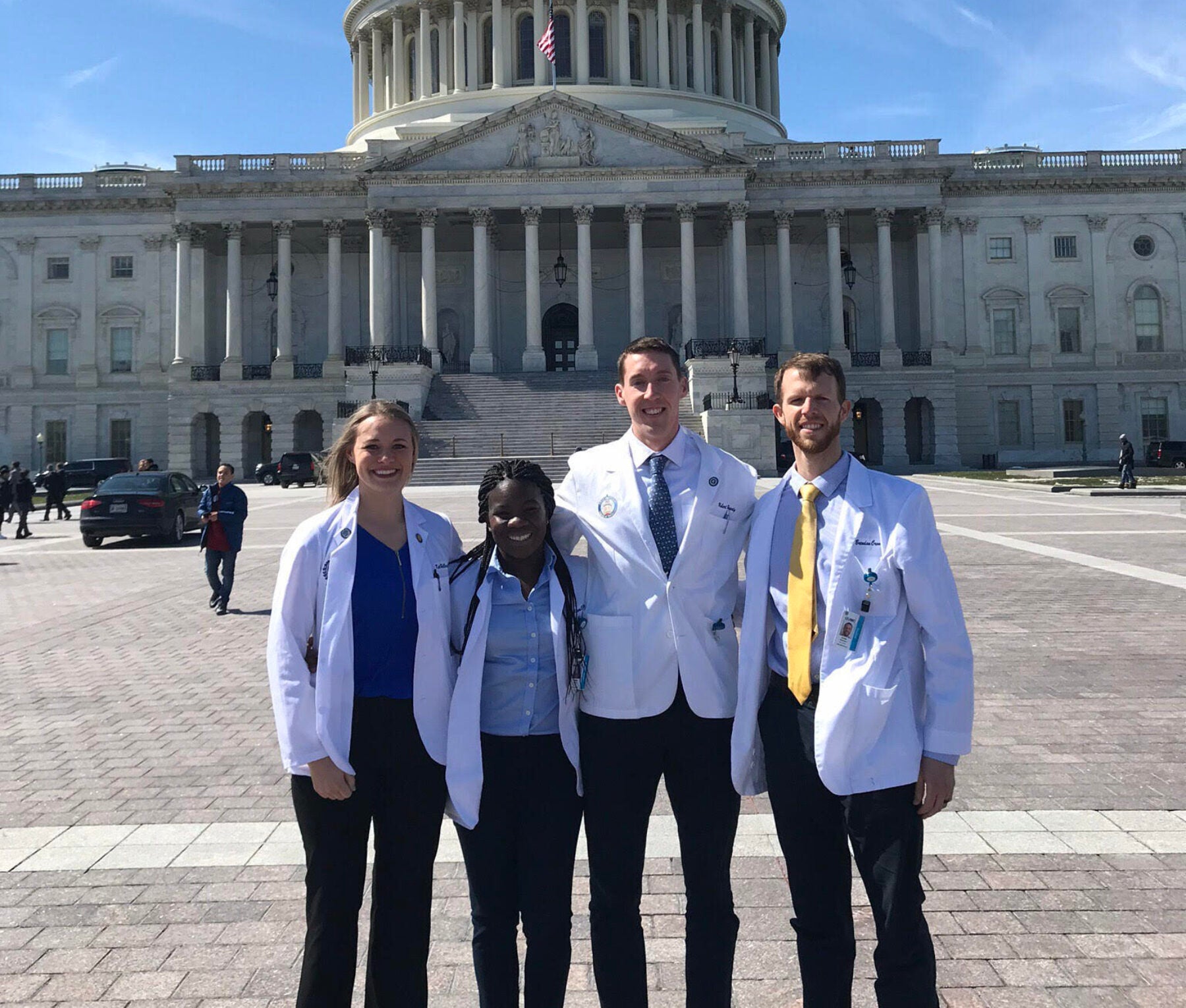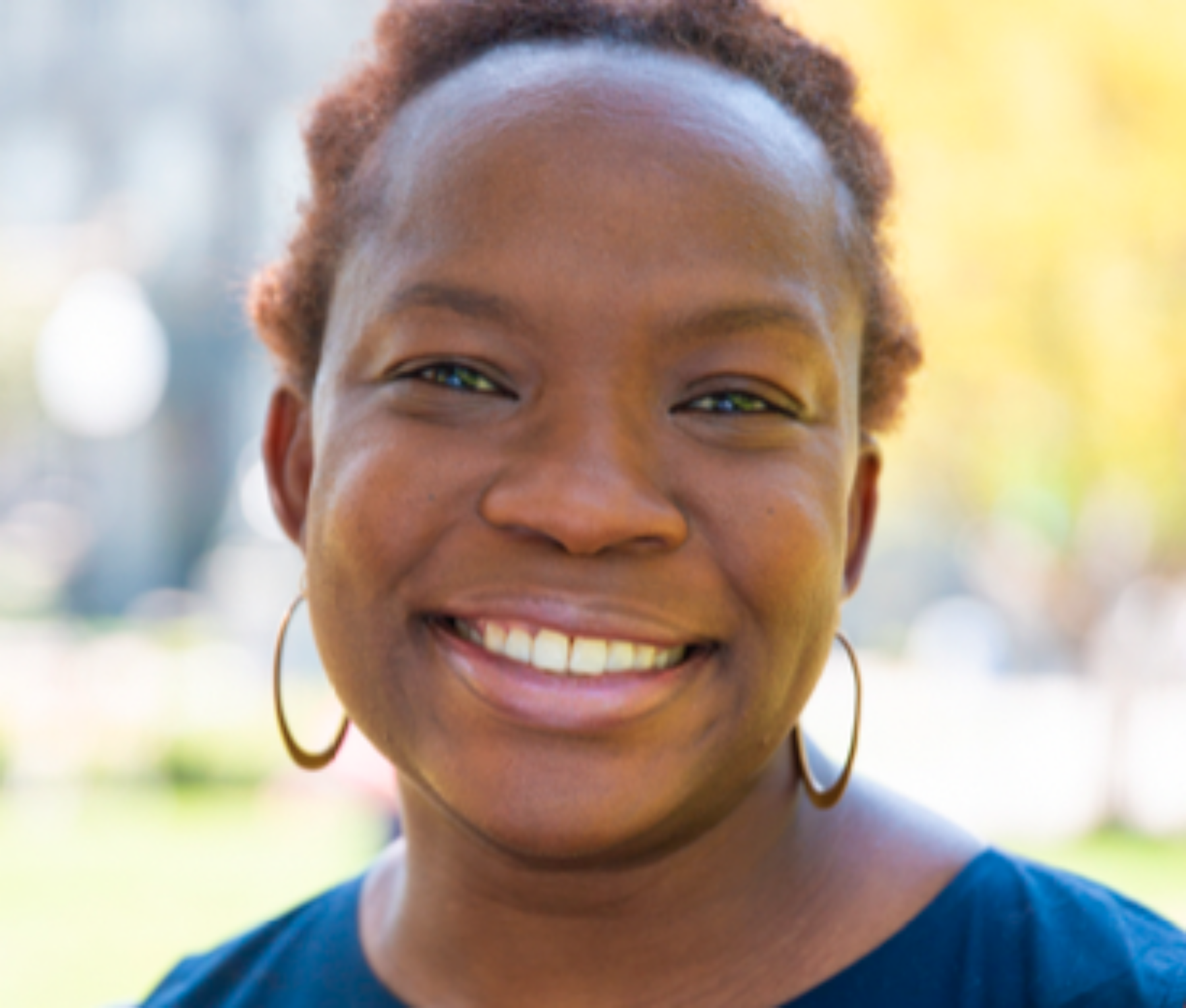Racial Justice
University Strategic Initiative
Almost 160 years after the abolition of slavery, its legacies persist—in ways both obvious and obscured. To this day, our nation still does not fully understand these ripple effects, and how they shape our collective story. But we do know that Georgetown has a crucial role to play in studying them, and in illuminating the path forward.
As a Catholic and Jesuit academic institution, we are called to prepare students to contribute to a more equitable world. We are called to explore the role of race in society. And we are called to acknowledge our own university’s role in the injustice of slavery as we prioritize action.
Students, faculty, alumni, and partners across our entire Georgetown community have been contributing to this work, some for decades. Now we must amplify these efforts, accelerating our contributions to the greater good.
A university-wide commitment
This is—and will continue to be—a whole-institution undertaking. Work is happening at many levels; across an array of initiatives; through education, research, and action. We are focusing our energy and resources on areas where Georgetown’s unique strengths and perspective allow us to have an outsized impact, and we invite our donor community to advance initiatives that will be crucial contributors to this work.
-
History and reconciliation
Georgetown’s work in the space of racial justice is grounded by a deepening awareness and understanding of our own institution’s history with slavery. We are committed not only to acknowledging this history, but moving together in action—by partnering with and investing in the Descendent community, committing to making historical records accessible to the world, advancing our understanding of the legacies of slavery, and thoughtfully engaging each new generation of Georgetown students.
-
Student access and formation
Georgetown seeks to build a diverse, inclusive community where every future leader can flourish and discern their purpose in the world in the fullest expression of themselves. We are committed to increasing access to education; developing a diverse new generation of leaders across fields; and creating a campus where students find the community, environment, and support they need to thrive. Our donor community is a crucial partner in supporting programs that advance these commitments, including:
- Center for Multicultural Equity & Access
- Community Scholars Program
- Cultivating Opportunity & Realizing Excellence (CORE) Leadership Program
- Georgetown Experimental Medical Studies Program
- The Georgetown University Academy for Research, Clinical, and Health Equity Scholarship
- National Urban Fellows Program
- Patrick Healy Endowed Scholarship
- Patrick Healy Graduate Fellowship
- Pickering, Rangel, and Payne U.S. Foreign Service Fellowships
- RISE
-
Inquiry and innovation
We also seek to support the programs and faculty who are leading work across the academic, policy, and advocacy spaces to advance the well-being of Black, Indigenous, and people of color. Those include Georgetown’s Racial Justice Institute and affiliated centers, the College of Arts & Sciences’ Department of African American Studies, the Office of Minority Health & Health Disparities Research, and the Georgetown-Howard Center for Medical Humanities and Health Justice.
Their research and solutions will be essential as we seek to understand and address structures and systems that sustain the legacies of slavery and discrimination.
-
Community engagement and action
Georgetown is expanding our partnerships and presence in communities here in Washington, D.C., across the country, and around the world. Fueled by our commitment to be people for others, Georgetown seeks to expand key programs that directly serve marginalized communities—among them the Health Justice Alliance, Prisons and Justice Initiative, Pivot Program, and Center for Social Justice, Research, Teaching & Service.
We do this work in direct partnership with these communities, applying our expertise and capabilities as a university to address persistent racial disparities.
A Testimonial

“Working with the [Health Justice Alliance] gave me a glimpse of what real healing can look like, where you address the biological and the societal problems that are keeping someone from having a healthy life. …I no longer feel like I could practice anywhere without trying to make connections with legal advocates for my patients in need, it would not feel like complete care.”
—Robert Hagerty (M’20), now a pediatric resident physician at New York’s Mount Sinai Hospital, on the Health Justice Alliance’s work training the next generation of health, law, and policy leaders to work together
A Testimonial

“If we are committed to building a just and equitable society, it is essential that policymakers, civic leaders, and public servants represent all the communities, especially those disproportionately impacted by public policy.”
—Lisa Rawlings, president and CEO of the National Urban Fellows, which partners with the McCourt School of Public Policy to strengthen the pipeline of leaders from all racial and ethnic backgrounds, particularly people of color and women
A Testimonial

“The Community Scholars Program helps first-generation, low-income students establish community and increase their social capital and confidence so they can thrive in a highly competitive, predominantly white, affluent, elite atmosphere. The program has really elevated the university as a national elite institution dedicated to community and diversity.”
—Charlene Brown-McKenzie (C’95), director of Georgetown’s Center for Multicultural Equity and Access (CMEA), which supports students of color and is home to the Community Scholars Program
What is a University Strategic Initiative?
In this campaign, we ask: What could Georgetown accomplish with more expansive university-wide collaboration? We have identified several university strategic initiatives—including Racial Justice—that are poised for extraordinary impact. They span all of our campaign commitments, tap into expertise across multiple schools, and—with the right philanthropic support—will mark a new era of interdisciplinary problem-solving at Georgetown.
Explore opportunities to support Georgetown’s racial justice ambition
Support this work
There’s urgent work we can and must do—with implications for all areas of our university, the communities we serve, and the systems that shape our shared society. Donor support will be essential as we work to realize these opportunities and translate Georgetown’s unique capabilities into a more just world.
To learn more or to contribute to these priorities, please contact us at giving@georgetown.edu.


